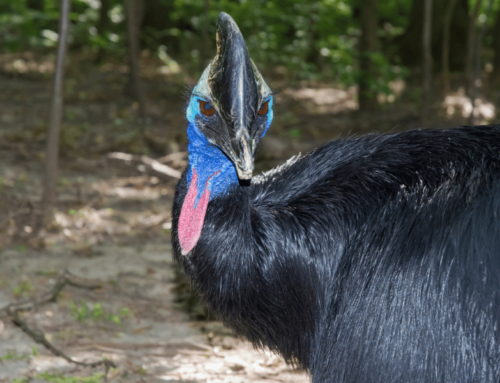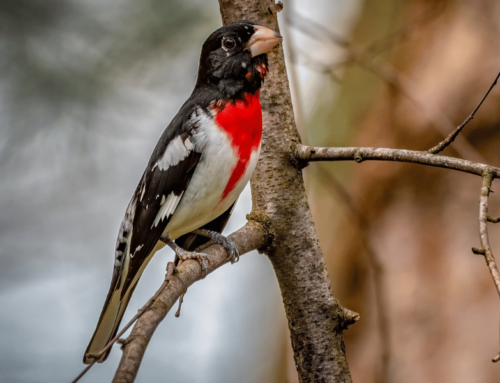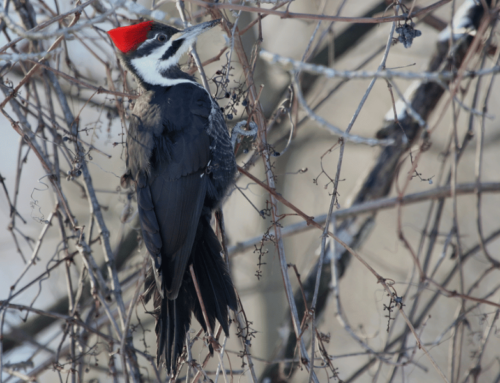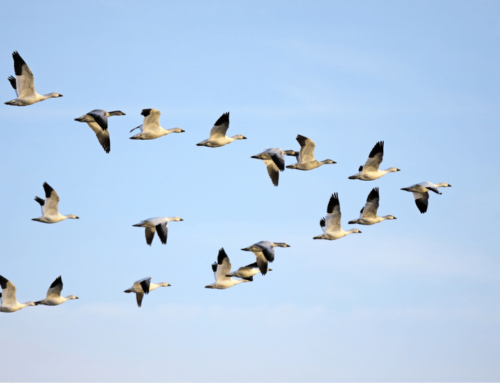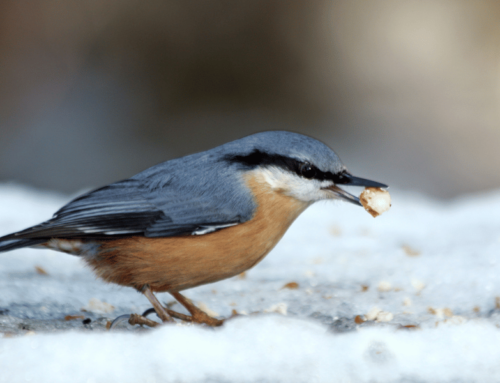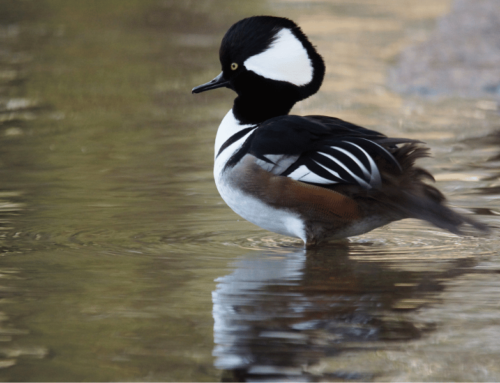Birdwatching is a great hobby to get into but before you get started you want to make sure you are following birdwatching rules that ensure we interact with wildlife as ethically as possible. There are practices and norms that birdwatchers abide by, that make it better for them and the natural world.
This post is all about 10 birdwatching rules for new birders.
1. Don’t disturb the birds
The best birdwatchers are people who are barely noticed or acknowledged by birds. It’s genuinely difficult for anyone to go completely unnoticed by birds due to how acute birds are at hearing. However, the goal for you is to give birds the impression that you’re not in any way a threat to them or that you are aren’t interested in them much at all.
Ensuring that you aren’t standing out significantly in the environment will cause birds to act in a more natural way instead of just watching you and deciding whether or not they should fly away.
The most effective way to keep birds at ease is to try to keep your distance. Not surprisingly, the closer you get, the more you are risking the birds flying away. If you have good binoculars, you can watch birds from a good distance. Cameras and monocular telescopes can also let you watch them from an acceptable distance.
This may seem obvious, but don’t move too quickly. Moving slowly and deliberately will keep birds from paying more attention to you, especially if you decide you need to get as close as possible.
Also, try to be quiet. Birds have very good hearing and making a single loud noise can be enough to scare off an entire flock. Unless you have found a way to remain completely silent while moving, sneaking up on a bird is basically impossible.
2. Don’t Litter
Littering can endanger birds lives along with harming the environment. Some birds will eat anything that resembles food to them, and brightly colored litter is sometimes consumed by them. This can be fatal as most trash isn’t digestible and will block a bird’s digestion as well. Trash can also pose an external danger due to the sharp edges of glass and other litter. Areas that are heavily trashed can even force birds to nest in locations that aren’t ideal for them.
Therefore, leave footprints and nothing else. If you can, pick up other people’s trash. It’s not your responsibility to keep everything clean of course. Just have the standard of leaving things the same as it was before, and the birds will benefit.
3. No trespassing
It doesn’t matter how desperately you want to see a bird – don’t trespass. It’s dangerous. A landowner might see you as a threat and resort to lethal force to protect themselves. If you trespass on government land, you risk possible jail time.
Usually, not trespassing is easy, as there will be signs and fences erected when the landowner doesn’t want you to trespass. However, if you’re not sure, just stay on land that you know you can walk on. Before leaving, do a little research to find out what locations are open to the public if you aren’t sure.
Rule of thumb: if you’re not sure about it, stay away.
4. Keep away from specific feeding and nesting areas
This falls right in with the first rule. Feeding areas and nesting areas are critical for bird ecology. By scaring off or disturbing birds in their rookeries, you are risking the birds abandoning their nests. Unprotected chicks are a favorite target for predatory snakes, lizards and other birds.
If you see a flock of birds that are feeding on something specific, it’s possible that this is one of their only opportunities a year for them to eat that specific food. Getting too close and scaring them off can disrupt a necessary feeding opportunity.
5. Always be learning
This hobby is first and foremost about having fun. If you’re not having fun, then I don’t know why you aren’t doing something else. One of the best ways to keep a hobby fun is to always learn.
Saw a bird that you aren’t familiar with? Look it up and figure out what species it is. With the internet, it’s easier than ever to identify a species.
You also need to learn how to use your gear. Using your camera, monocular telescope etc. will take time to understand how to use to the fullest. The better you understand how to use your gear, the easier it will be to get better a better view and take better pictures of birds. Getting a better handle of your gear will make it easier to birdwatch without disturbing the birds.

6. Dress Appropriately
This is actually a tougher one than you’d think. The general consensus among birdwatchers is to avoid white and any bright and unnatural looking color. Stick to browns, greens or any other color that won’t stand out to birds.
The subject of wearing camouflage is one that bird watchers still haven’t come to a real conclusion on. Some people are extremely skeptical, and others will only look for birds with a full ghillie suit and camouflage face-paint. In my opinion, I find it hard to believe that camouflage has no effect at all, but the benefits probably won’t be big enough for most people to justify using camouflage. Camouflage may also increase the chances of someone not seeing you and injuring you.
Also, don’t forget to dress for the weather. Wide-brimmed hats are a great idea for warmer weather. Even if its not that hot outside, the feeling of sunlight on your face and neck can be uncomfortable for extended periods of time.
Sturdy footwear is a must for birdwatching in rougher terrain to protect yourself from ankle injury.
7. Listen!
Birds are a unique group of animals as they are incredibly vocal. Birds will vocalize for no real reason whatsoever. Keeping your eyes open is still important of course, but you should be paying as much attention to what you hear as what you see.
Over time, you will get better at identifying birds by their calls. This can be complex as a single species can have several different calls. Don’t be discouraged by this and simply make an attempt to identify a bird by its call whenever its convenient.
Even if you didn’t have much interest in identifying birds by their calls, listening closely to the sounds around you tell you where the birds are regardless of the type.
Listen to your environment and finding the birds will be easier.
8. Give everyone respect
This rule applies to almost every hobby or activity and birdwatching is no exception. If someone manages to get the best viewing spot of bird before you, then you need to wait or find a different location.
Getting into unnecessary conflict can ruin an otherwise fun outdoor experience. If you manage to be respectful to others, they may help you find a certain bird if they are more familiar with the area than you.
At the very least, you should avoid unnecessary conflict with others as much as you can.
9. Put safety above everything
It doesn’t matter how badly you want to watch a Mute Swan’s courtship behavior, if it puts you in danger, don’t risk it.
One of the best ways to stay safe, is to birdwatch with a friend. Not going by yourself will ensure that you have someone to get help during an emergency. Even with your cell phone on you, there’s a high probability that you’ll lose reception in the wilderness. If you get stuck somewhere or are injured to the point where you can’t walk, you’ll need to depend on your friend to help you get back to your vehicle or call for medical help.
Always plan ahead for your birdwatching trip so that you can anticipate possible dangers.
Ward off mosquitoes and ticks with bug repellant. Mosquitoes carry West Nile Virus and Zika Virus. Ensure that the bug spray that you buy contains DEET, which has been proven by many studies to repel insects. Unfortunately, DEET is also not the most environmentally friendly substance. If you prefer a bug repellant that is effective and is less toxic to the environment, you can find a repellant that has either picaridin or permethrin. Both of those compounds have been tested and proven for their bug repelling effectiveness and both are less toxic.
10. Report illegal activity
There are lots of areas where hunting is illegal and there are species of birds that you can’t hunt regardless of where you are. Considering that you have interest in birdwatching, chances are that you care about bird conservation. There are many cases of people killing or hurting wildlife that go unsolved every year.
Game and Fish departments around the country investigate these cases and even a single tip might be enough to lead them to finding the culprit. This is especially important if you’ve seen hunting of an endangered species.
Don’t try to confront people if you see something illegal. You are risking turning this into a violent encounter. Instead, inform the proper authorities with all the information you have. It’s not your job to be law enforcement.
Conclusion:
Hopefully, these birdwatching rules have been helpful to you. Implement them to ethically interact with birds and other birdwatchers.
